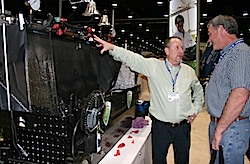 In the agricultural world, we oftentimes talk about farm to fork, farm to plate, gate to plate, you get the idea. I think it’s imperative that we educate folks who live in the city where their food comes from and about the people who work hard to grow safe, wholesome food for our dinner tables.
In the agricultural world, we oftentimes talk about farm to fork, farm to plate, gate to plate, you get the idea. I think it’s imperative that we educate folks who live in the city where their food comes from and about the people who work hard to grow safe, wholesome food for our dinner tables.
But as a mom, I feel of equal importance is teaching my son about how “the other half” lives. We stared that straight in the face last week during a family vacation to New York City. I say vacation with a smirk on my face because after dragging a 4-year-old and 7-month-old through the streets of NYC, I was exhausted!
Two experiences I want to note:
One of our cab drivers was from Africa and after asking where we lived and he learned Kansas and Nebraska, the first words out of his mouth were: Oh, I love those cowboy movies from Kansas! I very much dislike the city and want to move to Kansas and have some land and some cows.
Of all places, Kansas!
The other thing I observed was that on every city block, there were probably at least 20 restaurants. Think of how long it would take to “eat your way through NYC” and never eat at the same place twice.
Yes, Americans like to eat. And without farmers, where would they get their food?
I was thankful to return to the quiet roads of Nebraska and away from the bright lights and crazy traffic. It’s nice to visit and get away to the city for different experiences, but I’ll take my quiet nights any day.
Until we walk again …

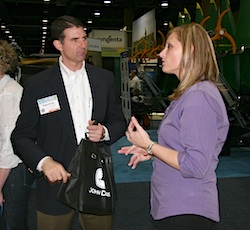

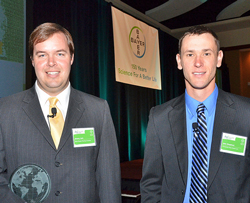


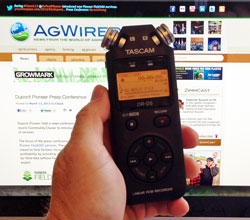
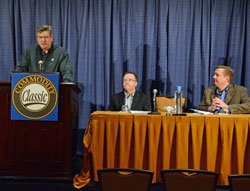

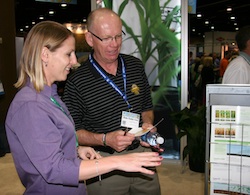
 Precision ag software … it’s necessary but can be, at times, daunting and confusing. There’s so much data growers need to compile and store from year to year, and data has really become a necessity versus a “perk” because it brings all of the information together in one place where growers can pencil out and see the value from the information and map out where their highest ROI potential lies.
Precision ag software … it’s necessary but can be, at times, daunting and confusing. There’s so much data growers need to compile and store from year to year, and data has really become a necessity versus a “perk” because it brings all of the information together in one place where growers can pencil out and see the value from the information and map out where their highest ROI potential lies.

